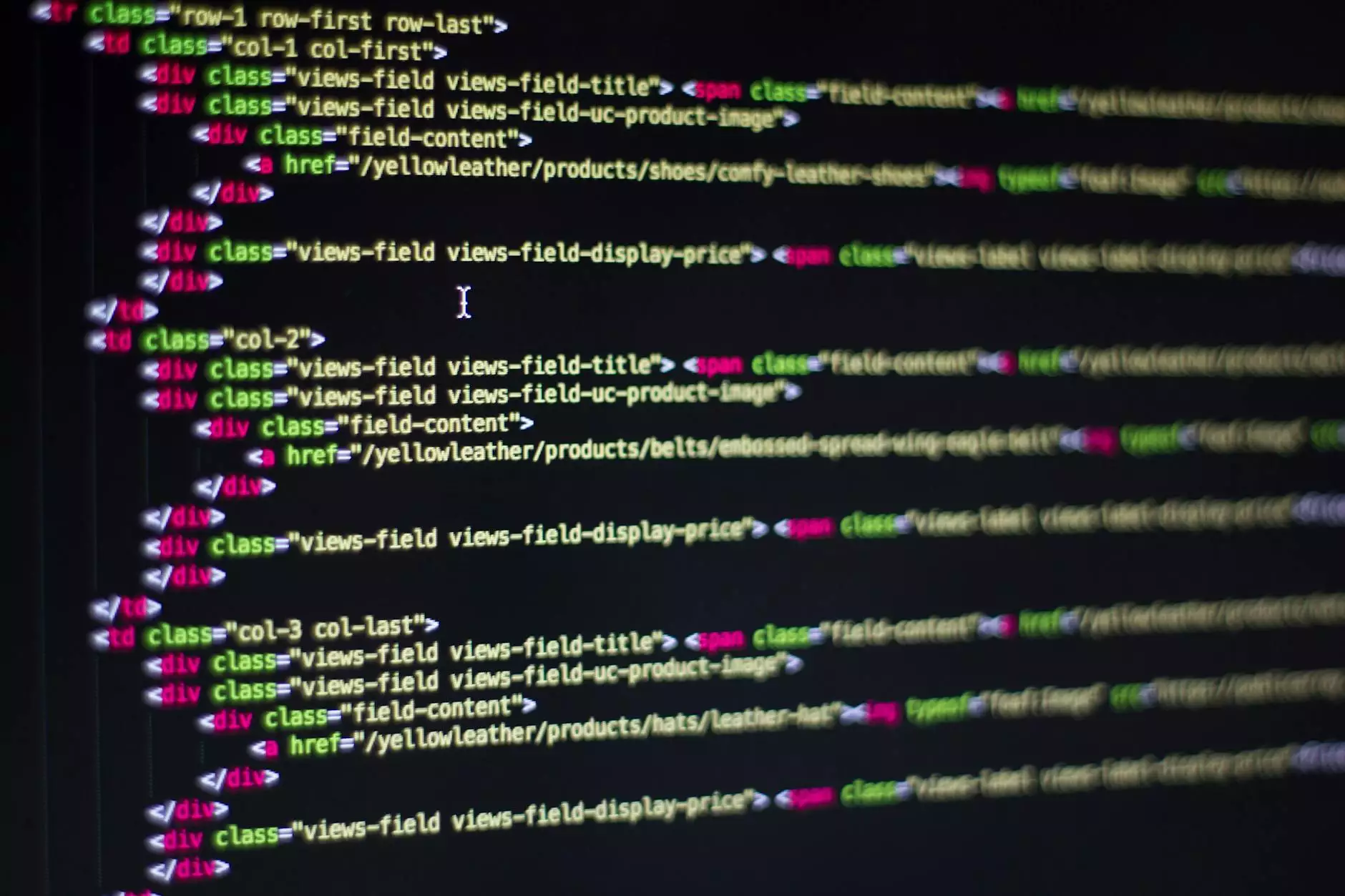The Best Backend Framework 2023
Marketing
Welcome to Shout It Marketing, your go-to source for everything related to Digital Marketing. In this article, we delve into the world of backend frameworks for web development in 2023. Choosing the best backend framework is crucial for your website's performance and scalability. Let's explore the top 8 backend frameworks that can elevate your web development projects to the next level.
1. Laravel
Laravel is a popular PHP framework known for its elegant syntax and developer-friendly approach. It offers a rich set of features including a robust ORM, authentication, and routing. With a strong community support and regular updates, Laravel is a top choice for modern web applications.
2. Node.js
Node.js is a powerful backend framework built on Chrome's V8 JavaScript engine. It allows developers to write server-side applications in JavaScript, offering high performance and scalability. Node.js is well-suited for real-time applications and APIs.
3. Django
Django is a high-level Python framework that follows the "batteries included" philosophy. It provides an all-in-one solution for building web applications, offering features like authentication, ORM, and built-in admin interface. Django is known for its security and scalability.
4. Ruby on Rails
Ruby on Rails is a popular backend framework based on the Ruby programming language. It follows the convention over configuration principle, making development faster and more efficient. Ruby on Rails is known for its elegant code structure and developer productivity.
5. Spring Boot
Spring Boot is a Java-based backend framework that simplifies the development of production-ready applications. It offers features like auto-configuration, embedded servers, and strong dependency management. Spring Boot is ideal for building enterprise-level applications.
6. Express.js
Express.js is a minimal and flexible Node.js framework that provides a robust set of features for web and mobile applications. It is lightweight and easy to learn, making it a popular choice for building APIs and single-page applications.
7. Flask
Flask is a lightweight Python framework that is perfect for small to medium-sized web applications. It offers simplicity and flexibility, allowing developers to create web services and APIs quickly. Flask is popular for its minimalistic approach and ease of use.
8. ASP.NET Core
ASP.NET Core is a modern and cross-platform framework for building cloud-based web applications. It provides high performance, scalability, and security features. ASP.NET Core is a versatile framework that supports different development styles and architectures.
Conclusion
Choosing the best backend framework for your web development projects is crucial for success. Each of the top 8 backend frameworks mentioned here offers unique features and benefits. Consider your project requirements, scalability needs, and development preferences when selecting the right framework for your next web development venture. Stay ahead of the competition with the best backend framework in 2023!









